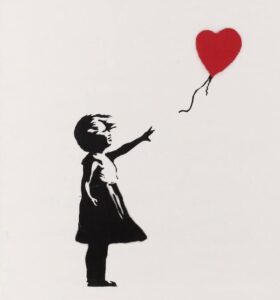The misjudjment of emotional dependency: when mass culture is wrong
4 min read
When talking about dysfunctional emotional dependency, we mean a pathological state that transforms the relation into the main reason of existence; the only and necessary condition to feel alive that must be preserved at any cost, although it may cause more harm than pleasure. In such a relationship there is no reciprocity. The emotional addicted, who can be a man or a woman, actually hides the need to feel protected and, also, a substantial low self-esteem. These two features tie him down to the presence and consideration of the partner, who represents the “oppressor” in this sort of dance where none is able to establish a healthy and stable connection. On one hand, there is a person seeking attention who is basically incapable of loving and taking care of himself; on the other hand there is a manipulator, affected by deep emotional issues as well, who exercises power and control over the partner.
The main difference with other dependencies is the social price assigned to the lovesick. The Red Cross nurse has often been praised for her spirit of sacrifice, although the situation seems to have changed lately. We can think, for example, to couple isolation as a synonym of artistic inspiration or jealous reactions as a symptom of love. Drug addiction, alcoholism, ludomania et similia are clearly perceived as a problem by society, while ‘lovesickness’ has been a recurrent and appreciated theme in literature and cinema for ages.
What is better than an impossible and destructive love in which there is a man or a woman to seduce, to dedicate all the energies to, for whom dying even, as it usually occurs in romantic novel’s dramatic endings? Our culture persuades us that only an alienating, claustrophobic, overwhelming and even masochistic love may represent real love. It would be as if online gamblers found in websites the notice “You didn’t really play if you hadn’t bet everything you owned” instead of the classic warning “Play responsibly”. There is no other addiction with as much cultural promotion as emotional dependence.
Recently, this strong idealization of toxic love has undergone a progressive dismantling. Society ignored the question for years, but psychological studies have largely analysed it. Let us consider, for example, “Women Who Love Too Much”, a 1970 best-selling book by the American psychotherapist Robin Norwood. Heart-breaking love is a successful stereotype in mass literature, and also those books, movies or tv series that apparently support the moral and social freedom of women end up following the cliché of self-accomplishment only through the great love. This has nothing wrong, actually, but it seems to exclude, in a certain way, any kind of individual endeavor. Undoubtedly, healthy love results less catching in terms of plot, since it is composed of everyday life, complicity, dialogue and reciprocal knowledge which are all the outcome of time spent together and not dramatic plot twists or tragedies.
However, the issue has been approached from a narrative perspective through some interesting and recently-born mediums. Among them stands out “Proprio a me”, an free Italian podcast produced by Choramedia and hosted by the Italian journalist Selvaggia Lucarelli. It describes some personal experiences of those who lived an emotional dependency, including the journalist herself. In the last episode, the podcast ends with the opinion of a psychologist who tries to take stock of the entire situation. This podcast is thought-provoking for many reasons, especially the attempt to answer the difficult question “Why don’t you dump him/her if he/she doesn’t treat you well?”.
Emotional dependency generates a need, as many other addictions. It feels like playing a fast-paced roulette or riding an emotional roller-coaster to which neither the victim nor the oppressor can renounce without working on their self-esteem, their identity awareness and, last but not least, the necessity to keep on living without the other person. This circumstance may appear difficult to understand by those who never experienced it, but first-person witnesses result as helpful means to identify with emotional dependency’s victims. It is essential to remember that these victims managed to leave their draining dependency, representing, therefore, an encouraging role model for those listeners who might feel hopeless and alone in their personal battle. The first step is actually recognizing that the relationship is a problem and that it must be faced as such. Indeed, leaving an emotional dependent relationship without falling for an identical one is like quitting drugs or alcohol.
Spreading the message throughout society would be extremely beneficial for those who are still struggling with this dependency.

Sono laureata in Lingue e Letterature Straniere a Venezia, città da cui ho imparato l’attenzione ai dettagli nascosti dell’esistenza, nonché l’elogio della lentezza (come direbbe Kundera). Ho sempre visto la letteratura, l’arte, la musica e il cinema come i cardini fondamentali della mia vita, le cui correnti mi hanno reso la persona che sono oggi.







